Mark Taylor doesn’t need the six-inch scar down his neck to remind him of the moment he was jumped from behind and stabbed six times. ‘It was my own naivety,’ he says, as he recalls his lapse of vigilance that day. ‘I should have known better.’
Now the Manager of Jimmy Egan’s Boxing Academy in Wythenshawe, Manchester, Mark has seen how boxing can change lives. ‘Wythenshawe is notorious for its gang crime,’ he says. The estate has been depicted in various TV documentaries as one of the most socially deprived areas in Britain. ‘Life isn’t easy for most young people growing up here.’
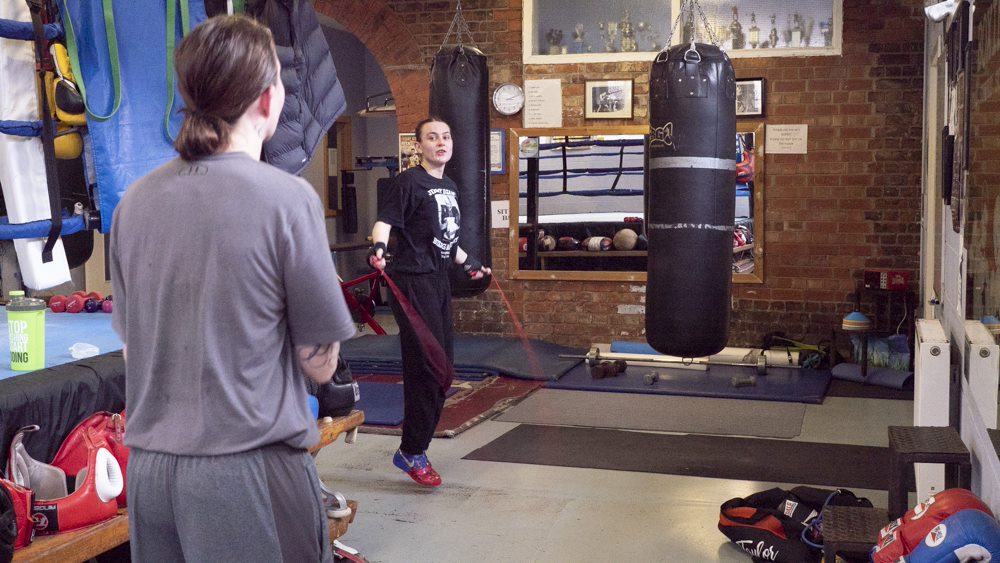
Women boxers, Tracie and Courtney, warm down after their first sparring event.
He speaks from experience. He grew up in Wythenshawe and, with no stable home life, had to fend for himself from the age of 13. He made roughly £200 a day from street crime.
It was while lying in hospital that Mark knew he needed to ‘break the cycle’ for the sake of his two sons. His wife, Lesley, has been his rock. They now work together using sport to reach out to young people and keep them off the streets.
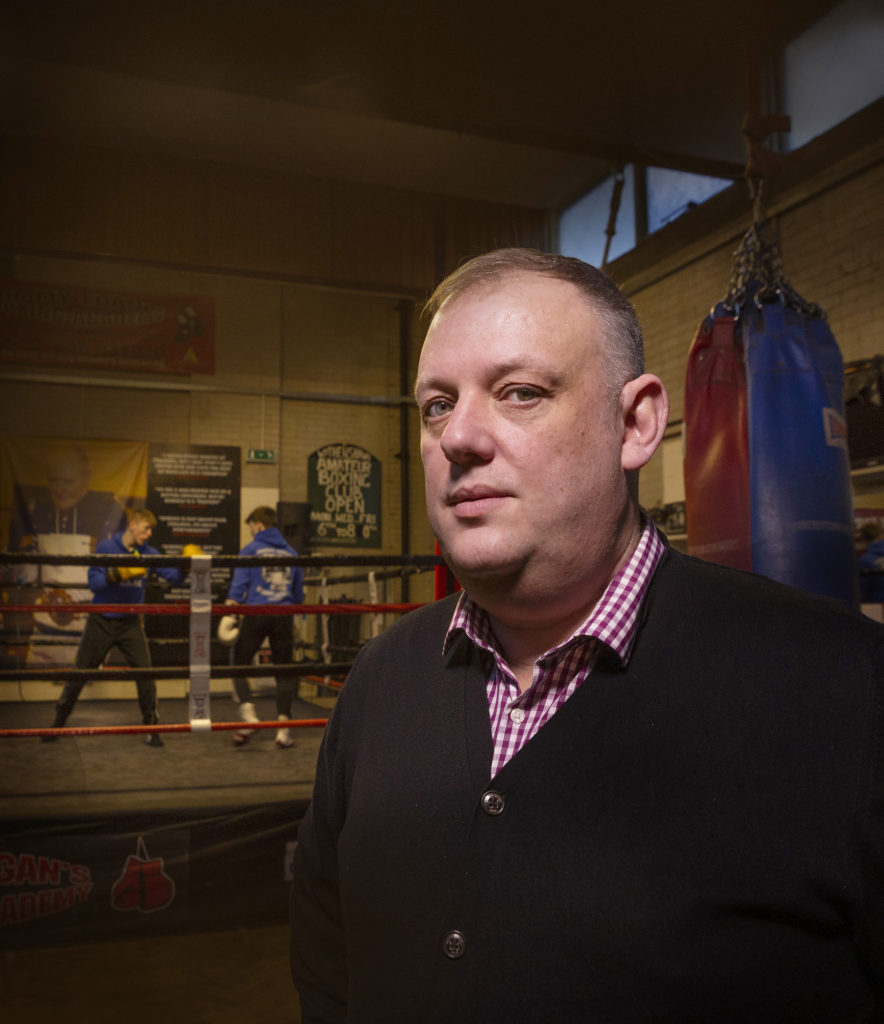
As we drive through Manchester, Mark gives a knowing nod at the sight of a group of youths around a parked car. We discuss the national epidemic of knife crime. It is no longer just a gang-related thing, he maintains: ‘it is a complex web of turf warfare and the need for protection and belonging. Young people are desperate to defend themselves against bullies and gang leaders, and also see carrying a knife as a badge of honour and identity. Knives are preferred to guns because they carry a lesser sentence if the police catch you carrying one.’
Mark believes the root causes of knife crime have remained the same for generations: ‘poverty, domestic abuse, lack of education – you see it every day here’. Escaping the cycle is near impossible. ‘It is far more achievable for them to get the nice car, nice watch and trendy tracksuit by selling drugs on street corners than it is by getting a legitimate job or going to university.’
Mark holds that boxing, when practised in a safe environment, offers the training, discipline and social skills needed to get on in life. ‘If you can hold your head above water in a boxing ring, I guarantee you can make it any walk of life,’ he says. ‘Local employers, looking to recruit hard-working committed young people, often approach me. Everyone knows how hard a boxer works.’
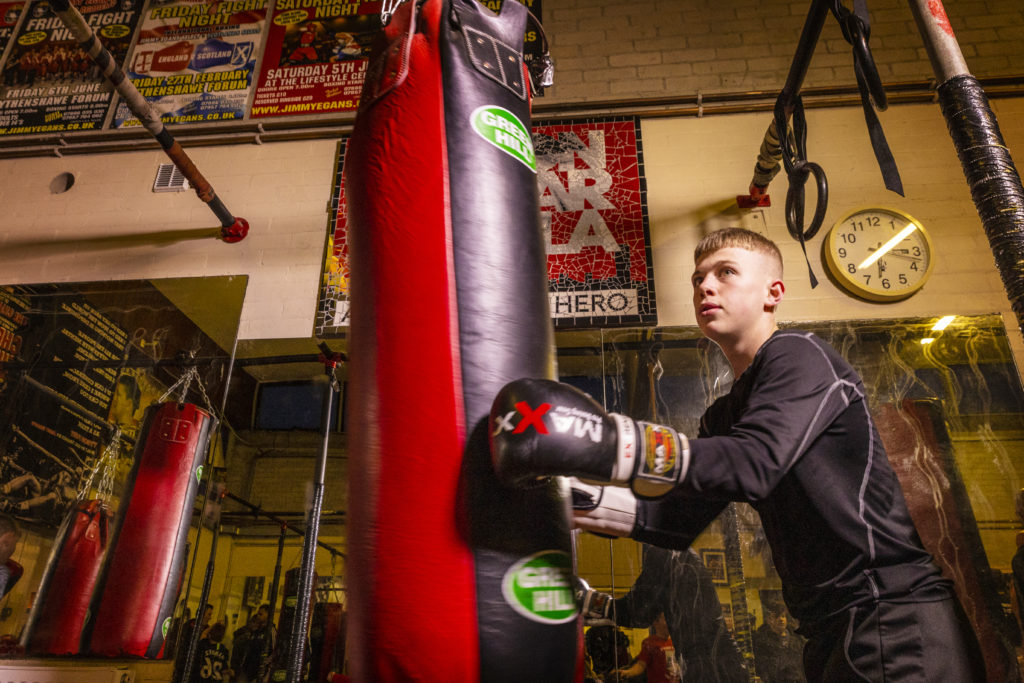
Egan’s Academy has produced 29 national champions and World Champion Tyson Fury. ‘Everyone who comes to the gym wants to be the best,’ says Mark. As we enter the Academy, young people are warming up with skipping ropes, proudly wearing their T-shirts and tracksuits.
I meet Courtney, 18, and Tracie, 34, from opposing gyms in the north and south of Manchester. To further their ambition to go professional, their trainers have arranged a number of sparring events.
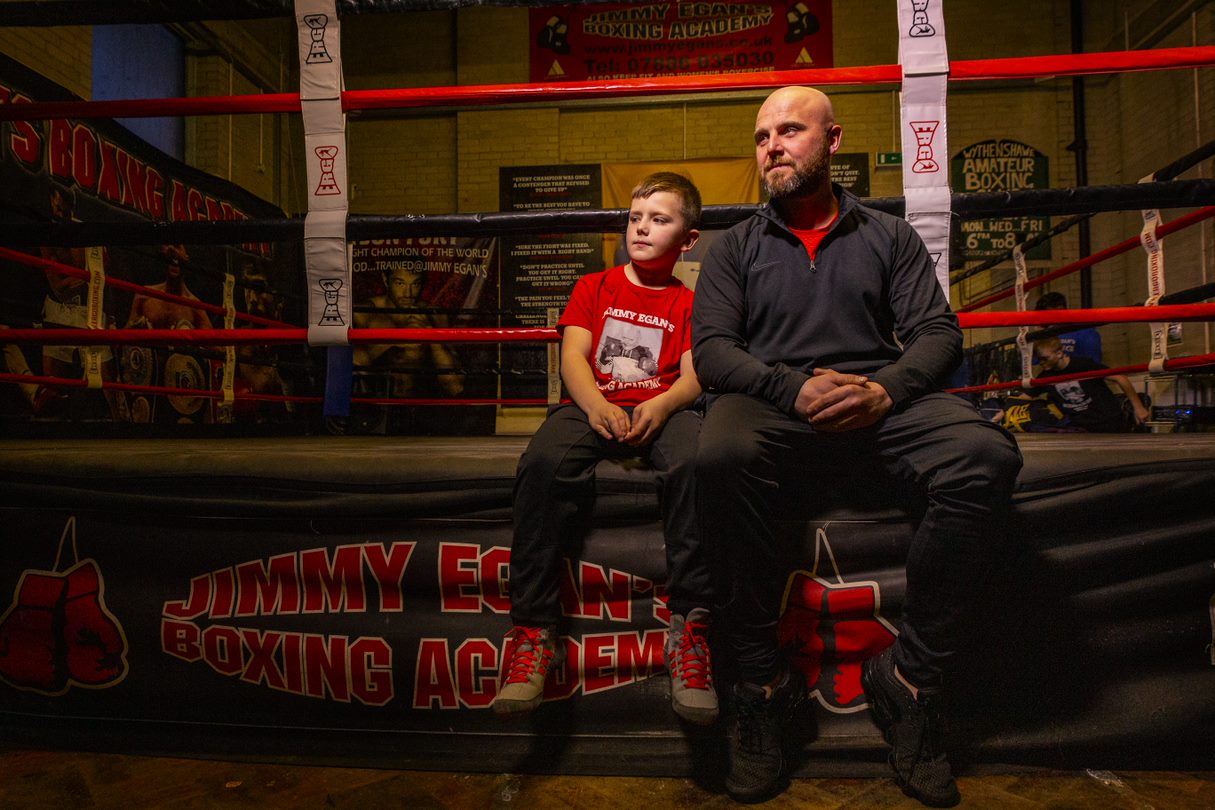
‘People think boxing is dangerous but it’s not,’ Courtney explains. ‘The training helps you to be stronger.’ Both women agree that without boxing their lives would be completely different. ‘I would probably have been an addict, in prison or dead somewhere,’ says Tracie. ‘My life was going the wrong way.’ As leading women boxers, they support each other at fights, subverting the traditional enmity between Manchester’s north and south sides.
In recent months, Egan’s Academy arranged for a team of Cuban boxers to fight at the Forum Centre in Wythenshawe. Mark describes Cuban boxing as the ‘pinnacle of amateur boxing’. For the ‘cheeky’ young Mancunian lads, it was a painful defeat, but a good chance to learn how to deal with losing and what it takes to be world champion.
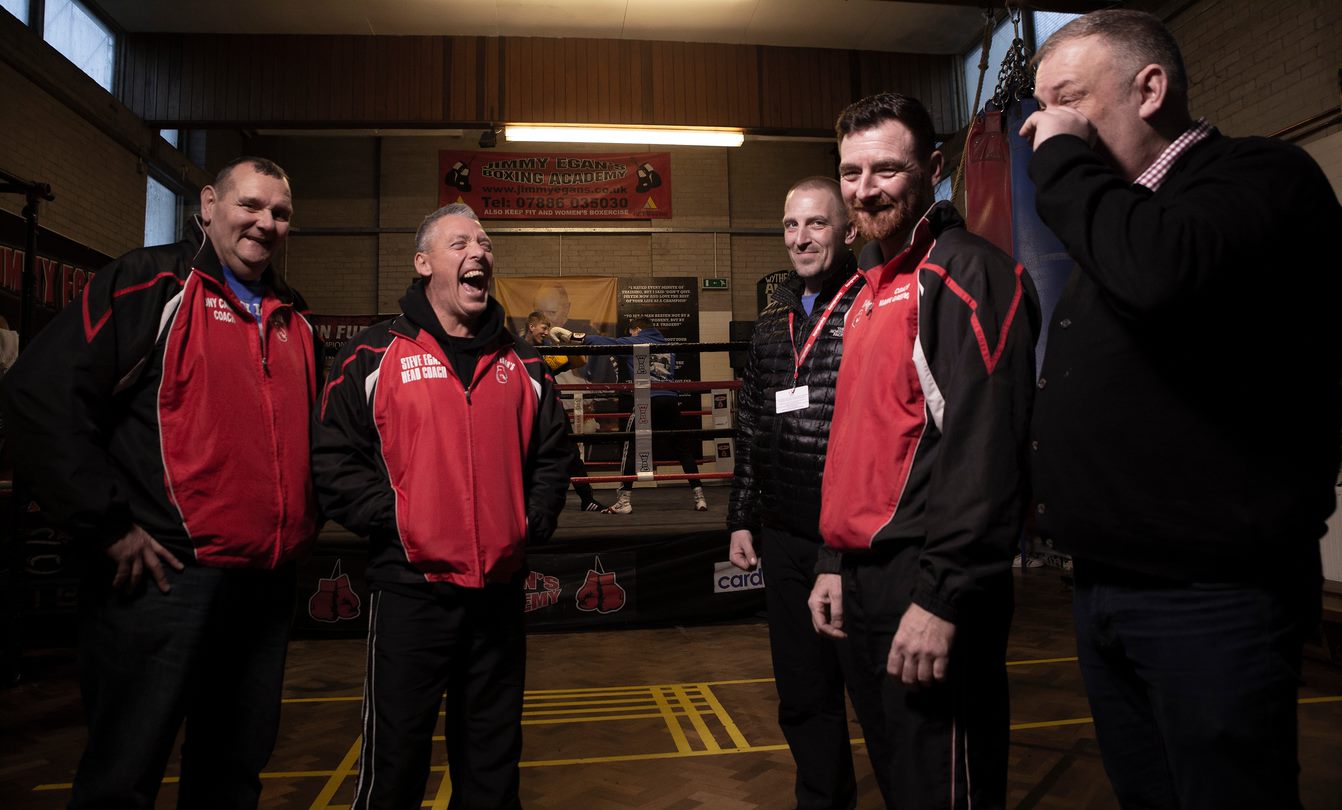
Mark compares the sense of belonging and pull of boxing to that of a gang. ‘Most of these kids who come through our door are broken in some way. But they see they can achieve greatness if they work hard for it. We give them hope and aspirations – something to believe in and fight for. We say “Drop the knives and pick up the boxing gloves.”‘ The volunteer team of coaches and mentors works every spare moment to keep young people off the streets and away from gang life.
Mark sees boxing as a way to build trust and relationships through respect ‘for one’s self, one’s sport and one’s opponent’. Finley, 11, turns up every week with his dad. Asked why he boxes, he replies, ‘When people start messing with you, you know how to defend yourself.’
Photos: Yee Liu Williams and Pete Sherrard